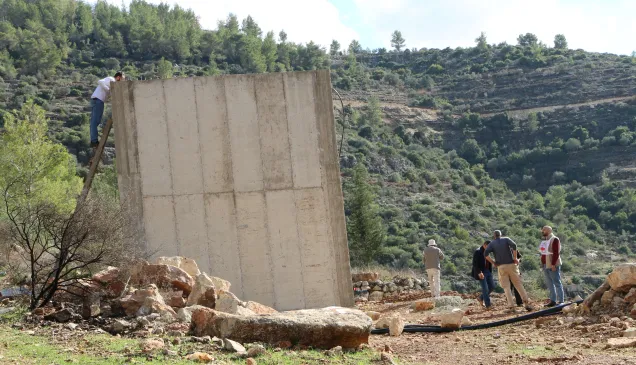Jerusalem: As Ramadan approaches, Al-Aqsa Mosque's guards receive training in first aid
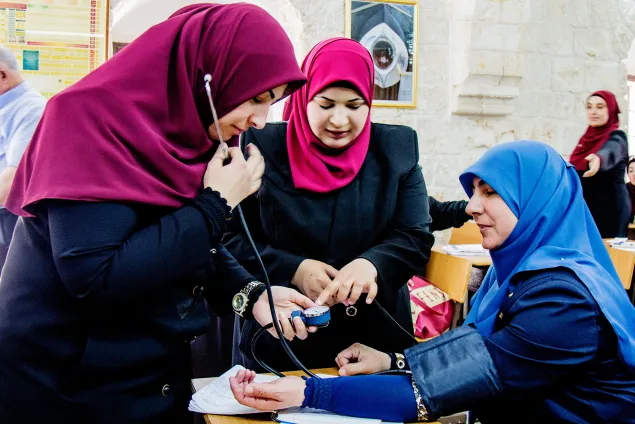
During the five-day course, 25 male and 20 female guards learnt specific skills and behaviours that first aiders need when caring for people caught in situations of violence or natural disasters, or suffering from heat strokes.
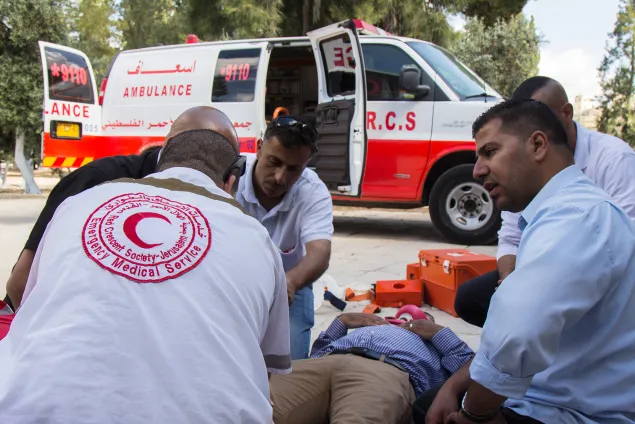
Al-Aqsa Mosque, Jerusalem
Sheikh Azam AlKhatib, General Director of the Jordanian Jerusalem Waqf, the religious trust responsible for the administration and Islamic affairs at Al Aqsa Mosque, said: "Never in history has an international organization been granted access to this holy site to carry out an activity, but the ICRC’s neutrality makes it different and we would like to have more such training courses."
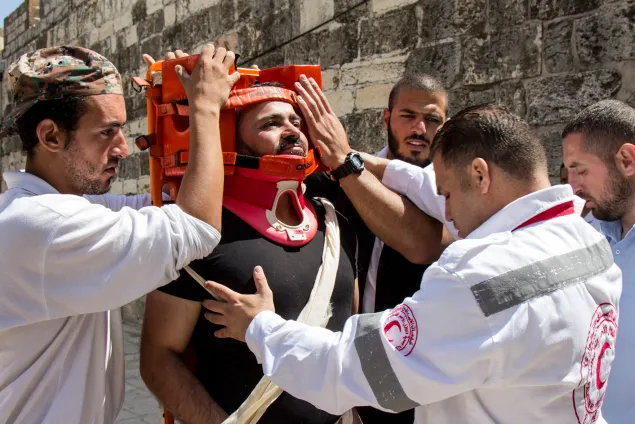
Al-Aqsa Mosque, Jerusalem
“First aid is crucial for the guards working in Al Aqsa Compound because they are on the front line, working day and night, responding to disasters such as fires, injuries and spates of violence,” explained Azam AlKhatib.
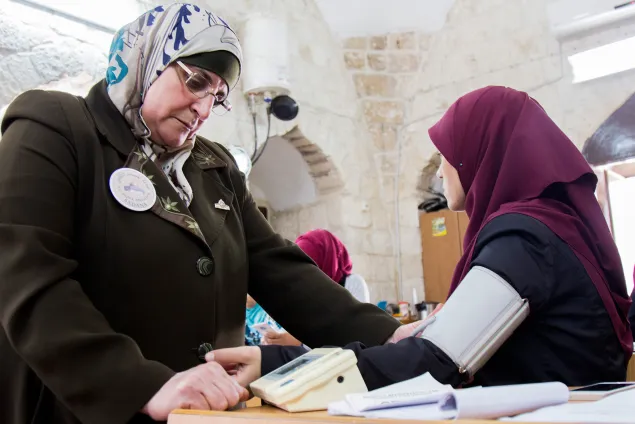
Al-Aqsa Mosque, Jerusalem
During Ramadan, more than 250,000 people are expected to visit Al Aqsa Compound every Friday, so it is important that guards know how to assist people in cases of medical emergency.
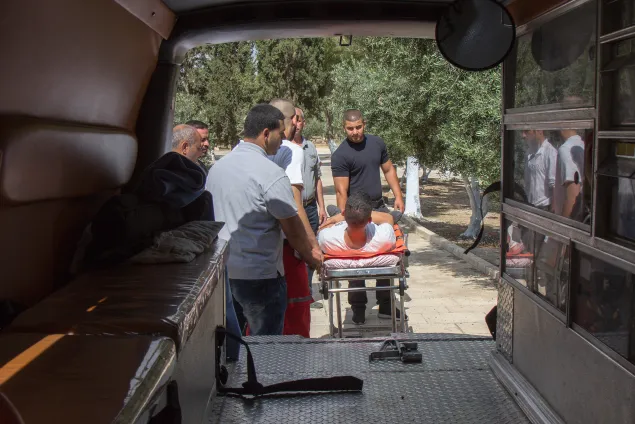
Al-Aqsa Mosque, Jerusalem
The Hashemite Kingdom of Jordan, custodian of Al-Aqsa Compound, allowed the ICRC to organize the training in Jerusalem's most recognizable landmark.
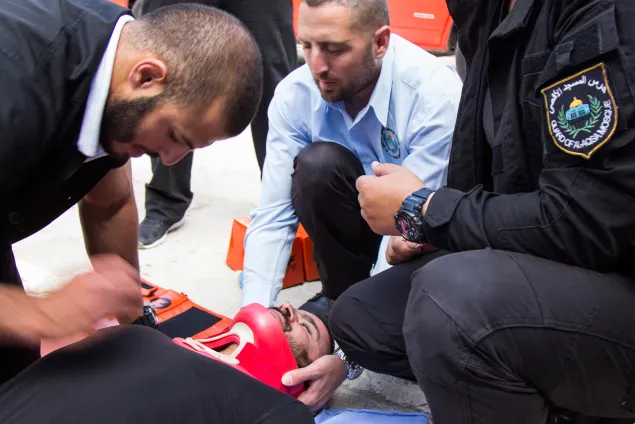
Al-Aqsa Mosque, Jerusalem
One of the guards said: “Hundreds of thousands of worshippers will be coming to pray during Ramadan. June will be a hot month and this first aid training course will help us to assist them, especially the elderly. What we have learnt is also very important since we witness many incidents at Al-Aqsa Mosque these days.”
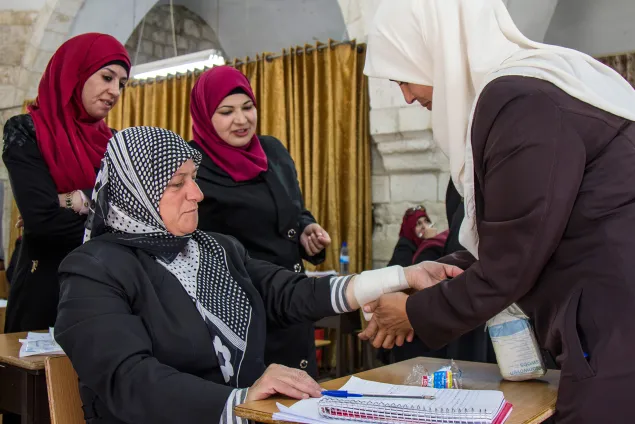
Al-Aqsa Mosque, Jerusalem
In emergencies, 90% of lives are saved by first aiders.
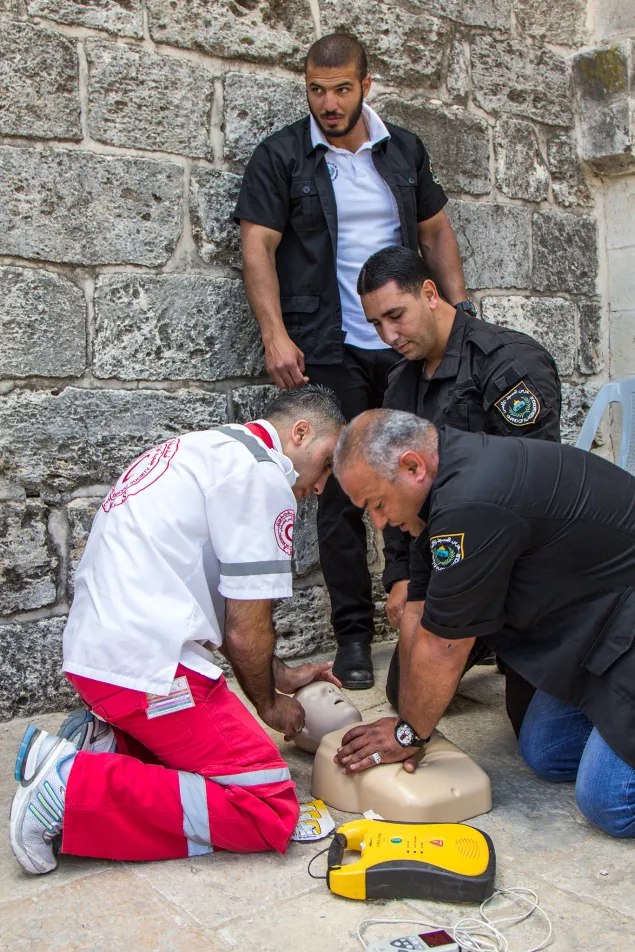
Al-Aqsa Mosque, Jerusalem
Tariq Abu Sbeih is from the old city of Jerusalem and has been working as a guard in Al-Aqsa Compound for 18 years. Together with 24 other male guards, he took part in the first aid course in order to be the first to provide essential aid – be it bandaging a wound or offering much-needed comfort – when a crisis or emergency occurs.
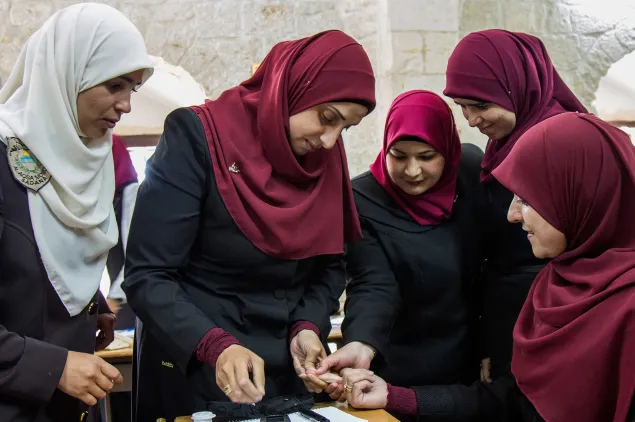
Al-Aqsa Mosque, Jerusalem
In armed conflicts and other situations of violence, first aiders face the risk of harm from dangers such as gunfire, collapsing buildings, burning cars, unstable rubble and tear gas. When the most natural reflex would be to run the other way, they step forward to help the wounded.
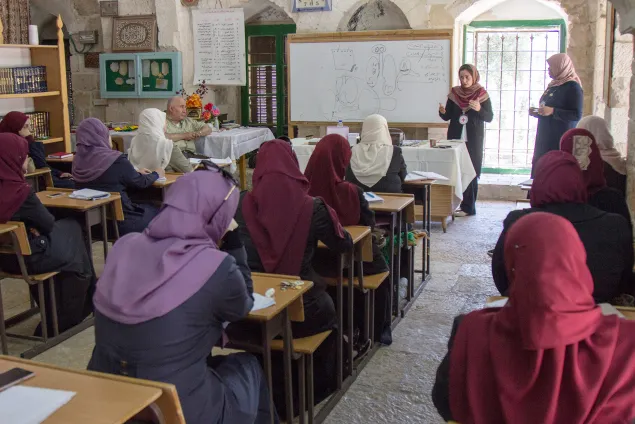
Al-Aqsa Mosque, Jerusalem
The participants also learnt about international humanitarian law as well as the ICRC’s protection activities in Israel and the Occupied Territories, such as the family visit programme and visits to detainees.
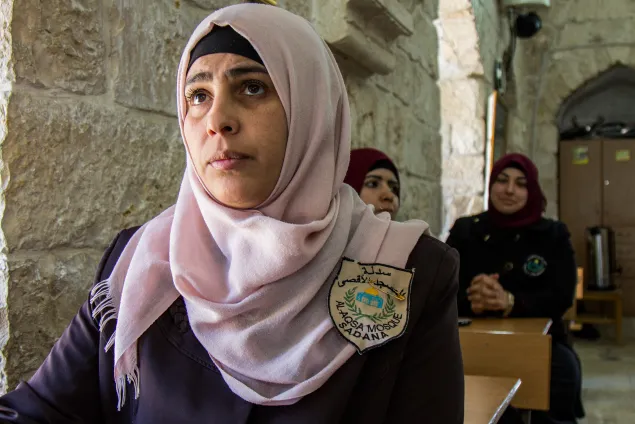
Al-Aqsa Mosque, Jerusalem
Lamya Abu Rmeileh joined the Al-Aqsa Compound guards 16 years ago and gave the training course in first aid her full attention. She said: “If I have to face a situation in which I must act as a first aider, I will implement what I learnt without hesitation, be it for my kids at home, my neighbours or people at Al-Aqsa Mosque, or in any other incident.”
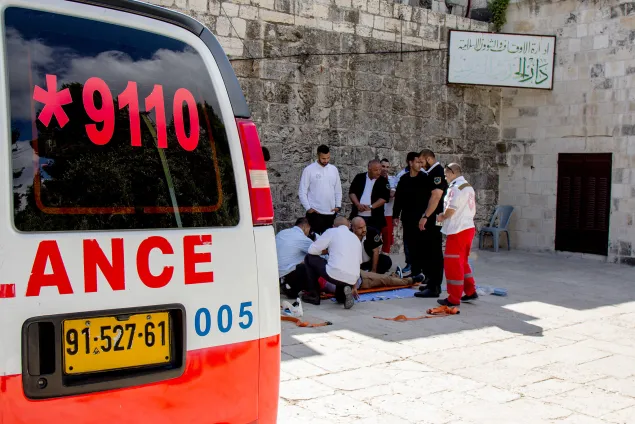
Al-Aqsa Mosque, Jerusalem
The ICRC, with the support of the Palestinian Red Crescent Society, will continue to train the guards of Al-Aqsa Compound so that they can take swift and effective action to deal with non-communicable diseases such as strokes and help reduce serious injuries during outbreaks of violence in Jerusalem.
Following an escalation of violence in recent months and the expected rise in temperatures during Ramadan, the ICRC and the Palestinian Red Crescent Society organized first aid training for guards at Al-Aqsa Compound in Jerusalem – the first time an international organization has been granted access to this holy site to carry out such an activity.
Read more at:


